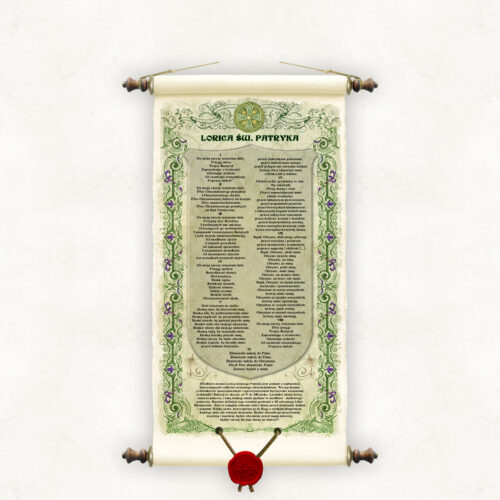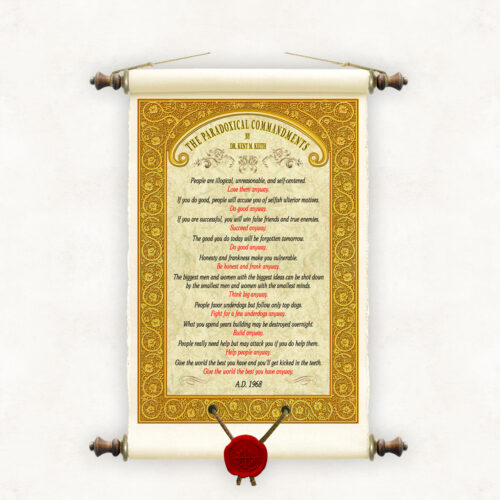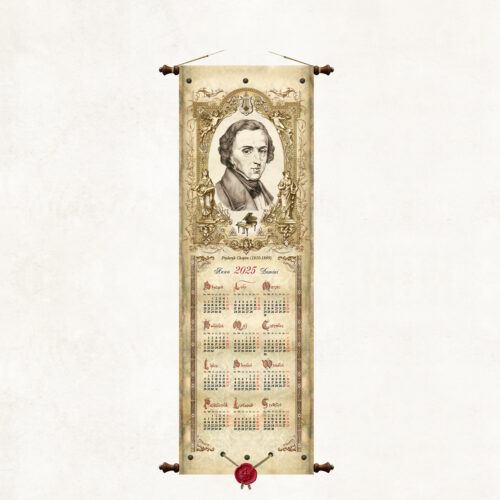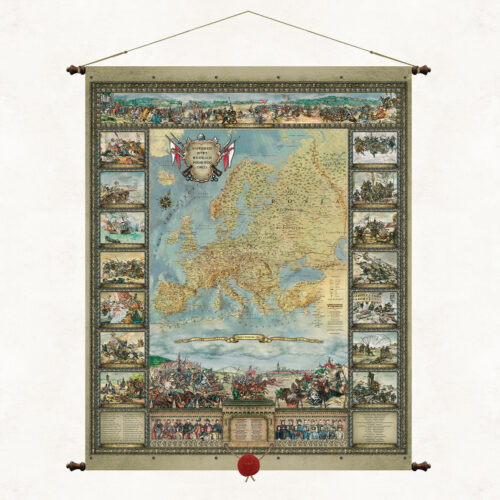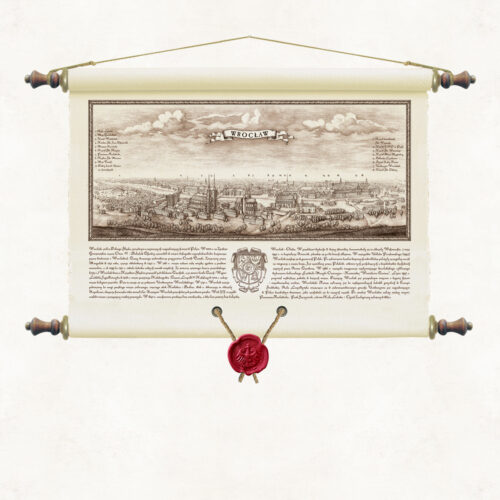The Paradoxical Commandments
This piece was written by Kent M. Keith in 1968 as part of a booklet for student leaders. In the Polish version it is known under the title Mimo wszystko (Anyway). Its content inspired the name of the Anna Dymna Foundation - Mimo wszystko.
The Paradoxical Commandments, contrary to their name, are not really paradoxical at all, they are in their essence commandments of love, and such a title would best convey the meaning of the piece.
Their profound content and message are de facto a practical interpretation of the Hymn of Love from (1 Corinthians 13). They are indications of how to fill human life with love in order to live with dignity. After reading the commandments, after all, a fundamental question irresistibly imposes itself. In the name of what should we act so paradoxically? The answer is one and is found in the Bible, in the name of love, for God is love (1 John 4). The author does not give us this obvious answer directly. What's more, throughout the text he consciously and consistently does not refer to God even once, although we can feel His omnipresence in the text. The number of commandments referring to the Decalogue does not seem to be accidental either. This fact meant that the text cannot be classified as a publication from the ranks of naive religious instruction.
The rest was done by the eternal human transcendent longing for truth, love, and the absolute. It made the Paradoxical Commandments immensely popular and, as the author himself writes, “For more than 50 years, the Paradoxical Commandments have circled the globe. They have been put on walls and refrigerator doors, featured in speeches and articles, preached from pulpits, and shared extensively on the web. They have been used by business leaders, military commanders, government officials, religious leaders, university presidents, social workers, teachers, rock stars, parents, coaches, and students. Mother Teresa thought the Paradoxical Commandments were important enough to put up on the wall of her children’s home in Calcutta.”

